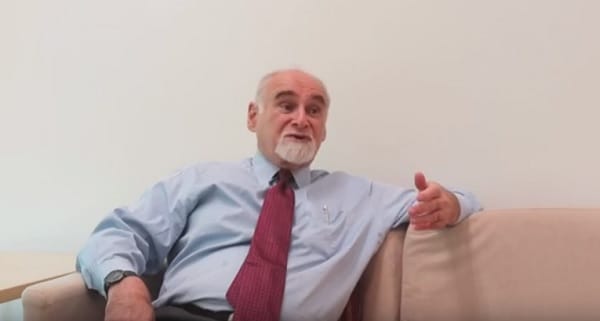In July, the SIIA hosted an evening talk on Russia’s foreign policy moves and the implications for Asia, featuring views from Professor Steven Rosefielde, Professor of Economics at the University of North Carolina, Chapel Hill and a member of the Russian Academy of Natural Sciences.
In this interview for the SIIA, Prof. Rosefield picks up on some points from the talk, examining Russia’s recent engagement with ASEAN and China against the broader context of Russia’s interests in Western Europe. Video of the interview will be on our website and YouTube channel soon.
Q. What is the future of ASEAN-Russia relations? Are we entering a new era of superpower competition in Southeast Asia, and what does this mean for our region?
Prof. Rosefielde: The simple answer to this is that Russia will definitely increase its relationships with ASEAN. Second, we are in fact entering an era of superpower, confrontation of superpower and rivalry. That’s good news on the first one, bad news on the second. The second won’t be a serious problem for a very long time, because Russia’s interests are focused on Western Europe at the moment.
Q. Are Russia and China really growing closer, or is this just a marriage of convenience against the US?
Prof. Rosefielde: The short answer to this is that it’s a marriage of convenience, but for the time being, it’s a happy marriage of convenience. The marriage is going to deepen and widen, so Russian relationships with China will become increasingly sophisticated and important for both parties, and consequently for South-east Asia as well.
Q. Does this year’s ASEAN-Russia Summit signal a real shift in relations? Will we see more trade and other links?
Prof. Rosefielde: Continuing with the response that I gave in the first question, you will surely see more trade. The magnitude of the increase in trade and a change of the quality of relationships is going to be determined by Russia’s engagement in Western Europe. The reason is that Russia has devoted most of its economic and military resources trying to recapture losses that have sustained after the fall of the Soviet Union. One statistic that is useful to you: Russia has devoted almost nothing to building up its naval forces in the Russian Far East. If they had intentions of playing a strong superpower game here, they have to reallocate resources in their defence budget into this stance. If they haven’t, well it certainly hasn’t happened yet.




